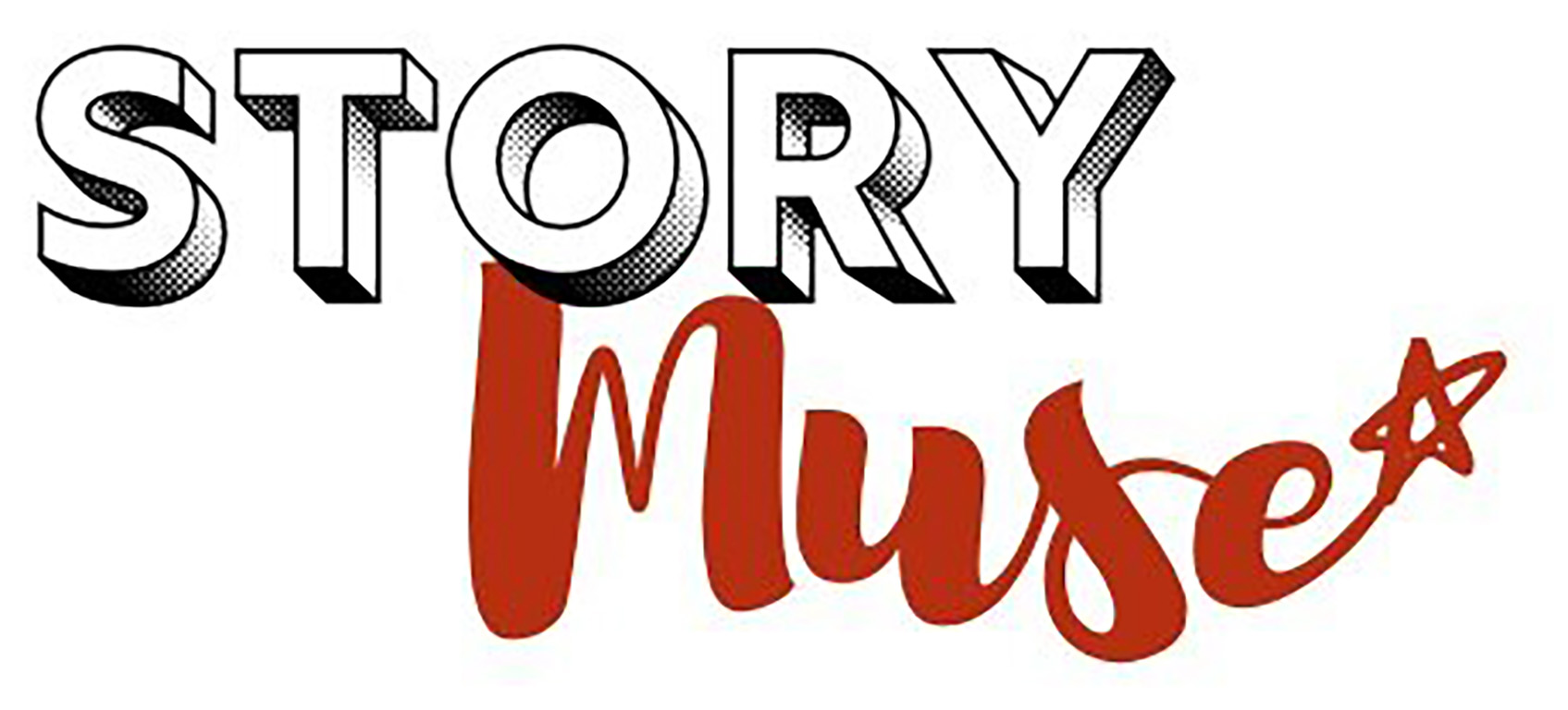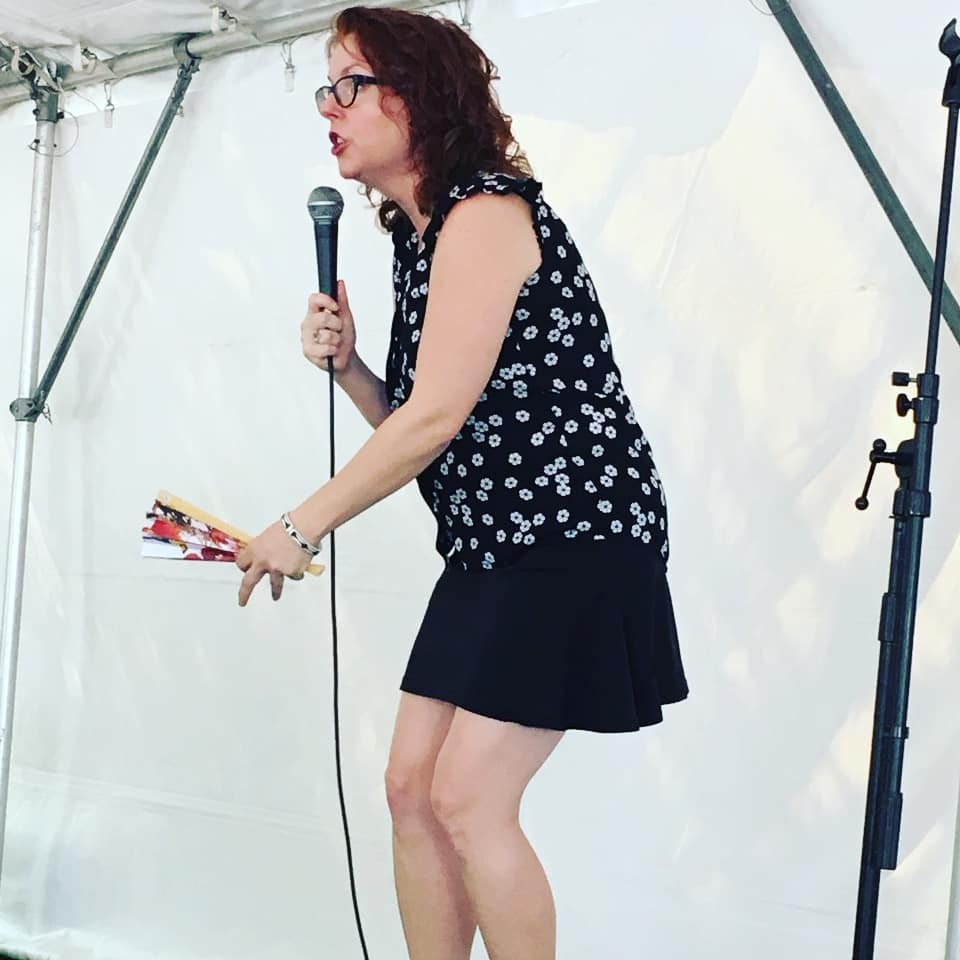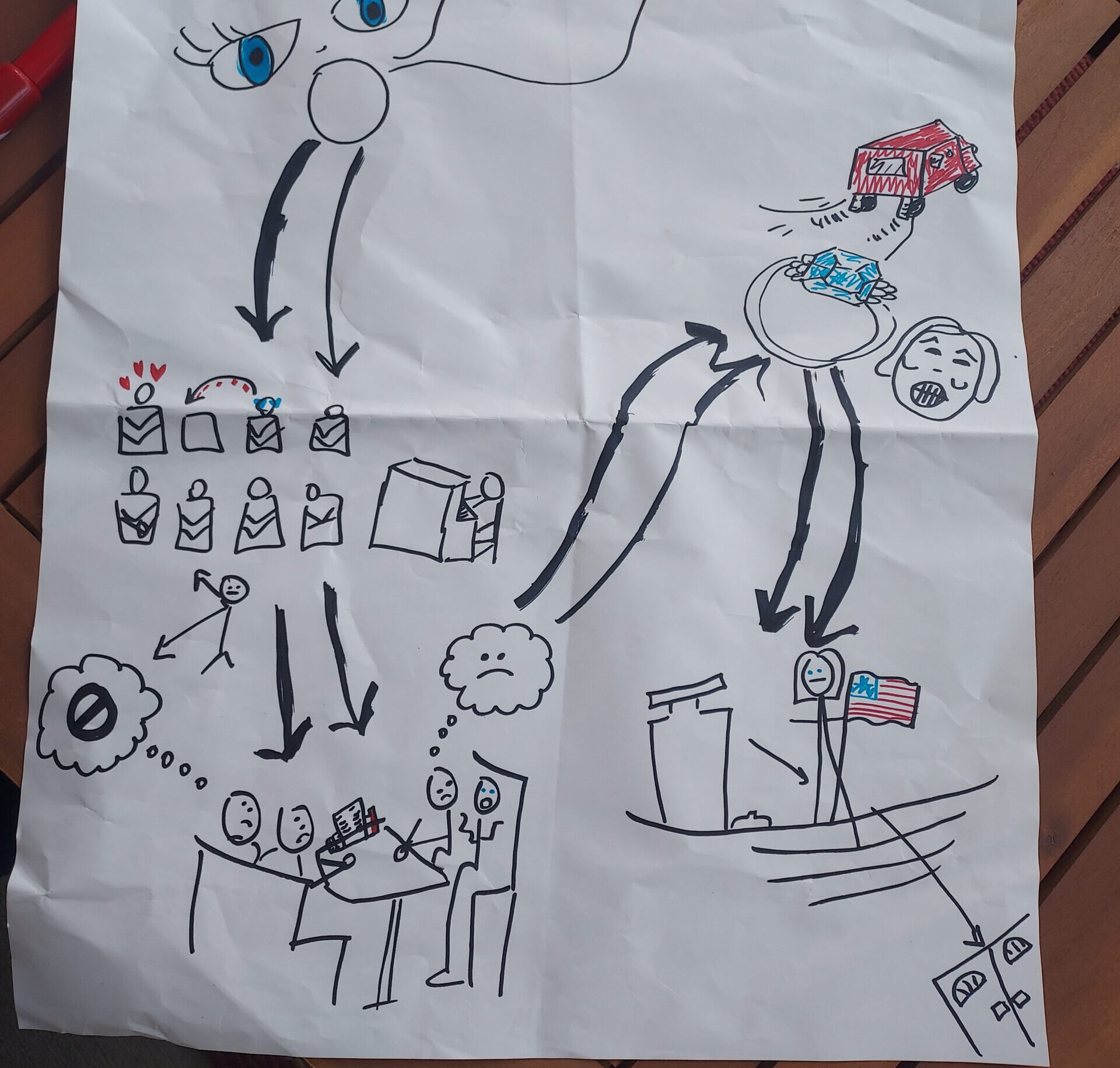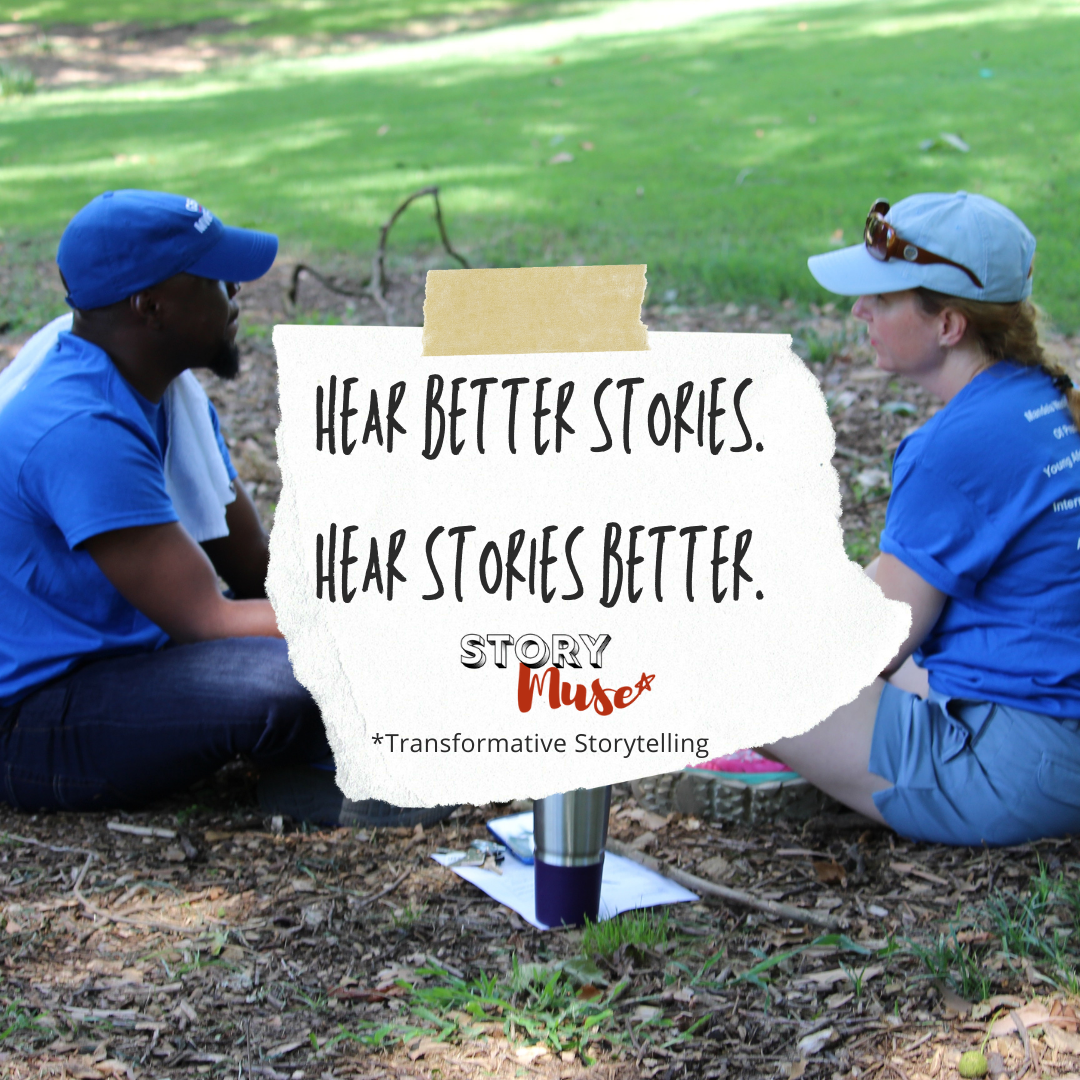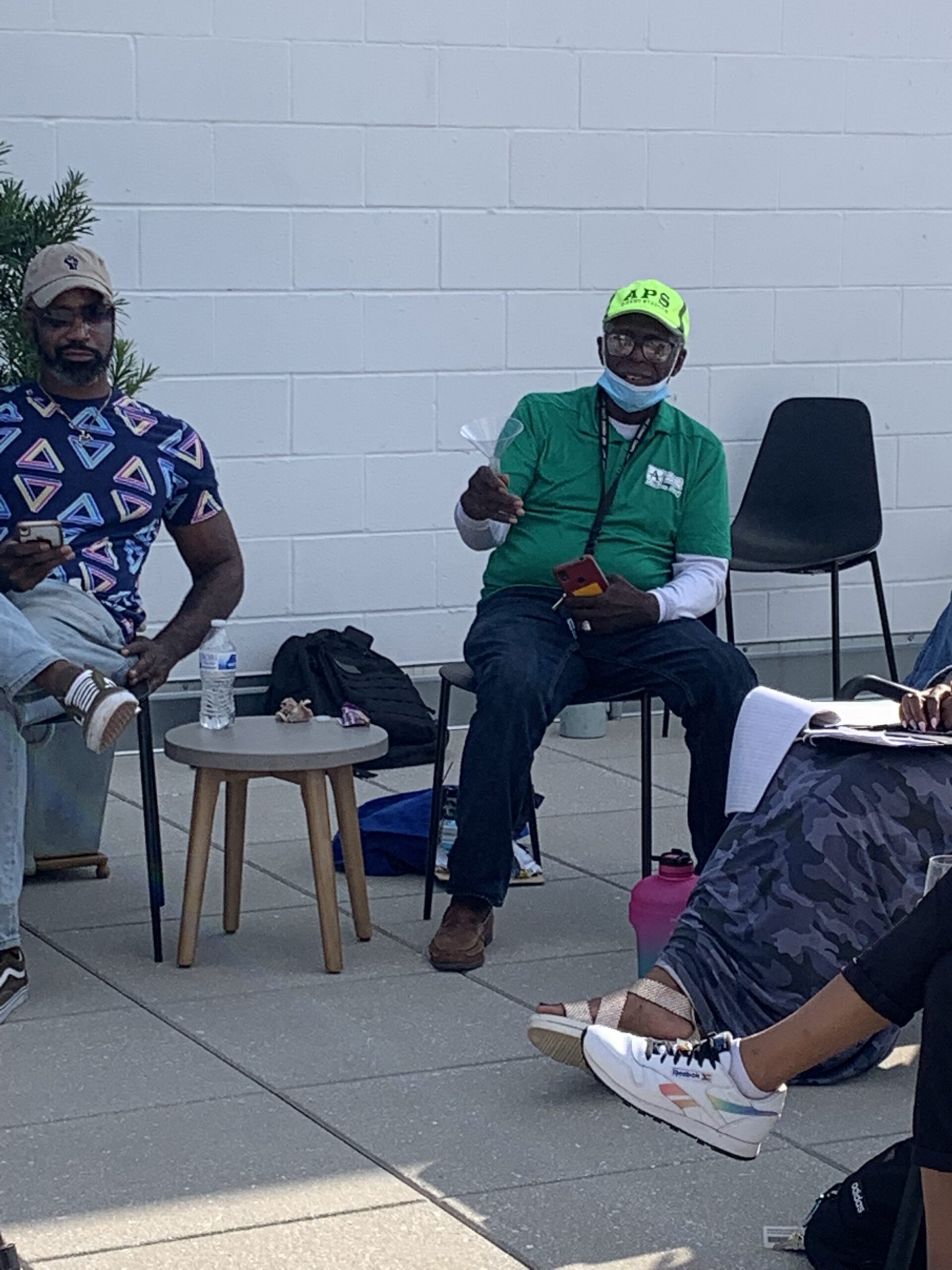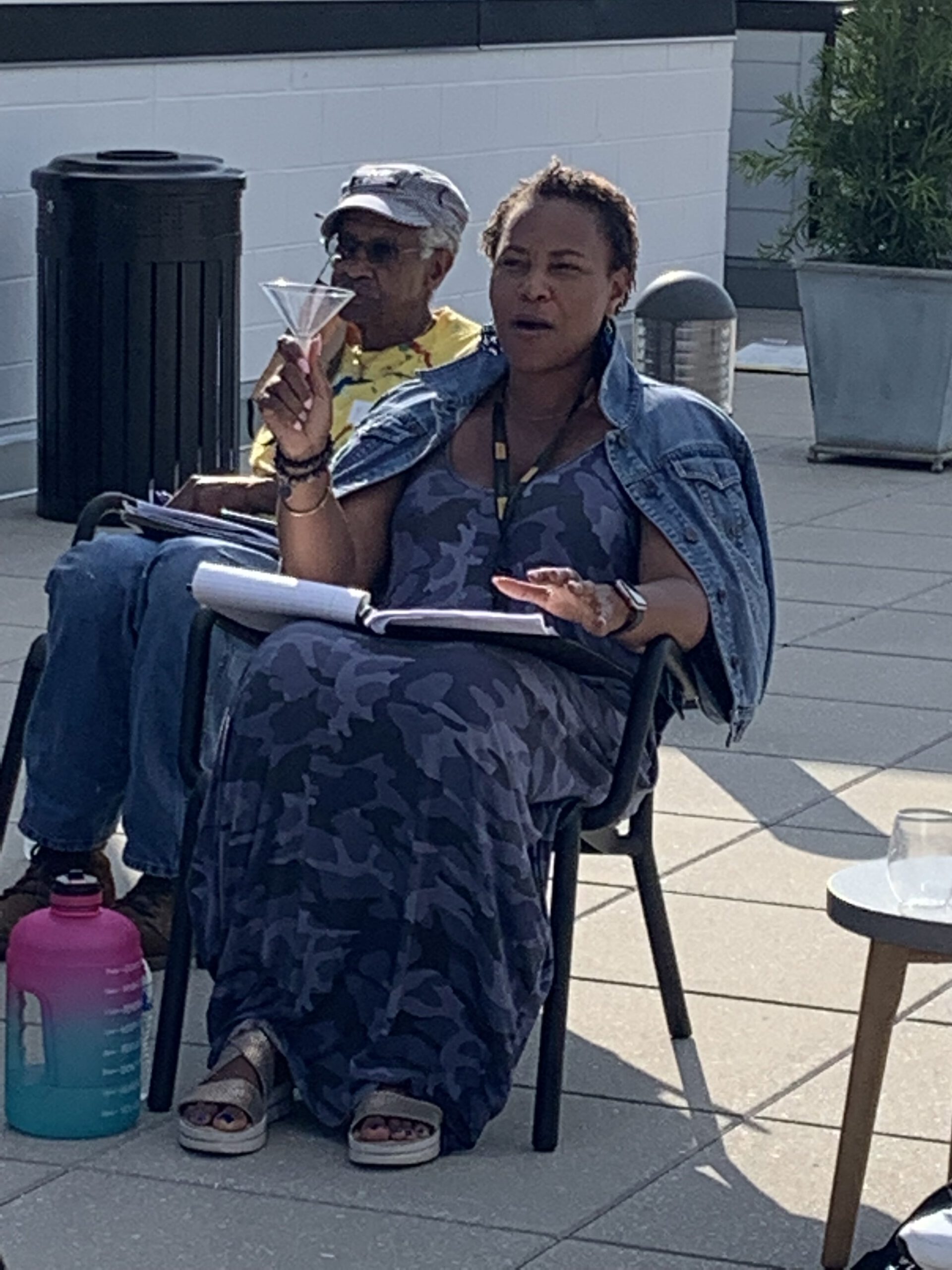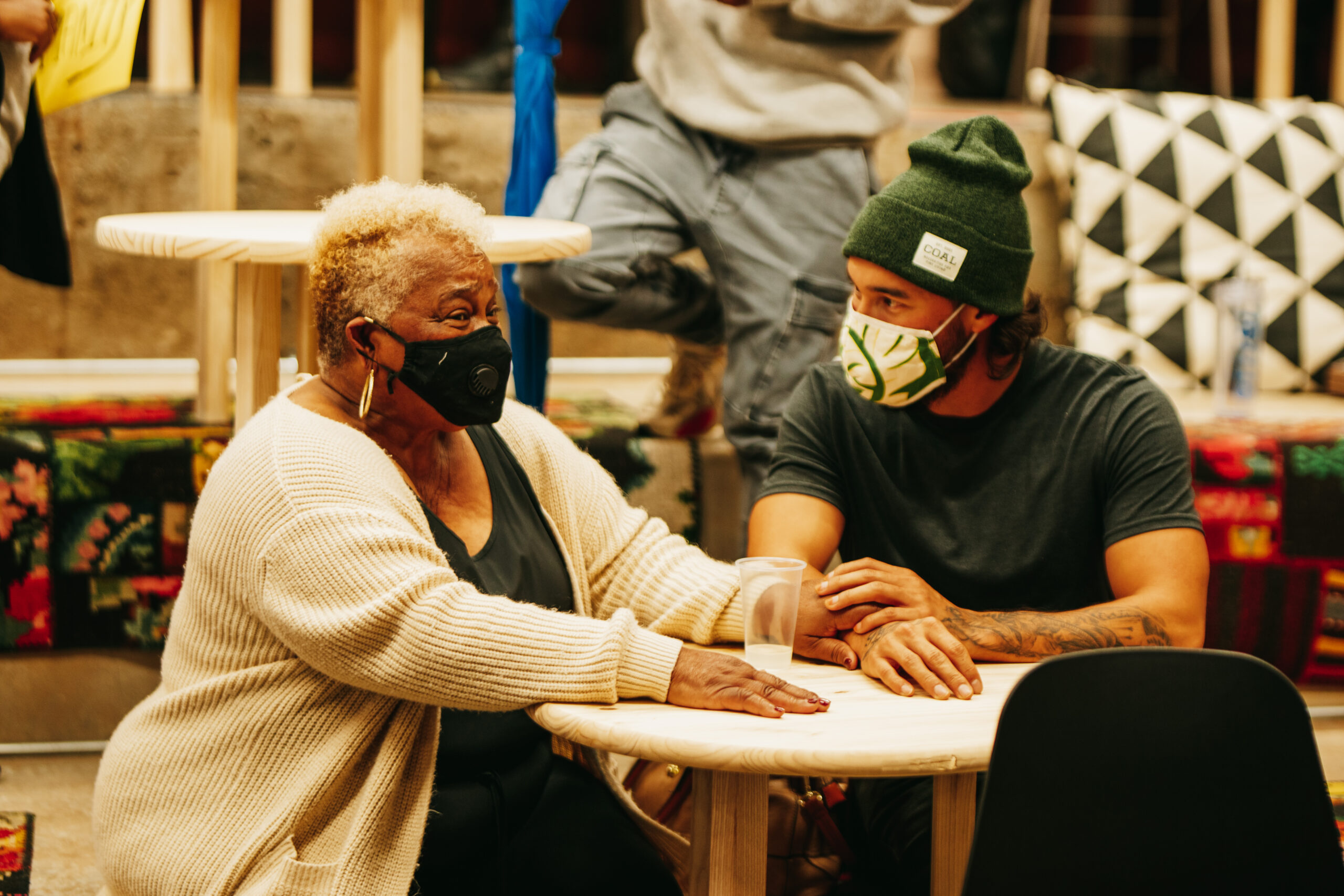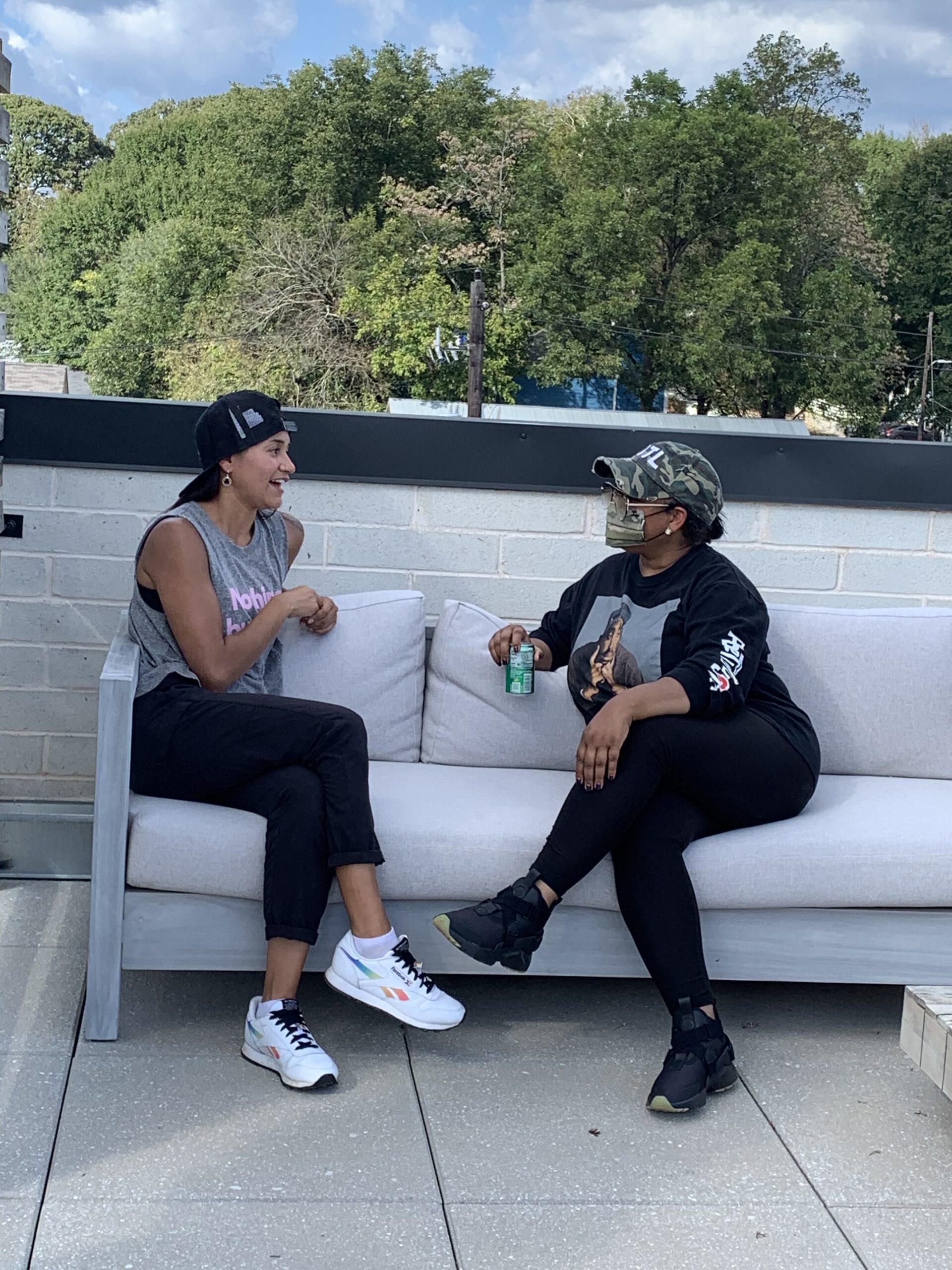8 Tips for Telling a Powerful, True, Personal Story
-
- Charisma model/power pose. If you’re nervous before telling your story, imagine someone you admire (someone you know or someone famous) who embodies power or charisma or the qualities you want to show, and imagine that person in a power pose (arms stretched overhead, arms crossed, hands on hips), and then invite that person to come live inside your body with you while you’re speaking. You’ll make a good team.
- Listen with the intent to understand. Before you get started telling your story, see if you can ask key questions to solicit stories.
- Know the theme of your story. Some stories are applicable to multiple themes, but one theme might draw out/highlight different details. Is your story about Conflict? Or is it about Resources?
- Know your first & last line.
- Example first line: It was the winter of my discontent.
- Example last line: So sometimes I just remember, when life has knocked me down, all I have to do is stand up.
- Outline the “shape” of your story, but don’t script it all out. This is brain science. One side of your brain is dedicated to written language, the other to your lived experiences. It’s your story. You cannot get it wrong.
- Paint the picture of your story with specific details.
- After walking the 7 miles back to my Budapest hotel, I shivered in my tiny bed and ate Pez all night until morning when I could pick up the wire transfer. I was literally hungry in Hungary!
- I lay there on the ground with pizza, eggs, waffles, and Styrofoam plates stuck all over me.
- Vulnerability = good. The etymology of the word vulnerability means “to carry a wound with grace.” Remember that sharing your personal story and being appropriately vulnerable is a good thing. What good story starts with… ”Everything was always ok.” …moves on to “And I was always really good at it…” and finishes with…”So nothing changed.”???
- Make ‘em laugh? Maybe, maybe not. Do not cave to internal pressure to be funny. Storytelling is not stand-up comedy. You may find there are funny parts to your story. Great when that happens; not necessary for your story to be impactful.
If you’d like more information, or if you’d like to encourage someone in your life to explore their own storytelling, please consider my digital curriculum through Udemy.
Download/Print the Tipsheet for Telling a Powerful True Story Here.
